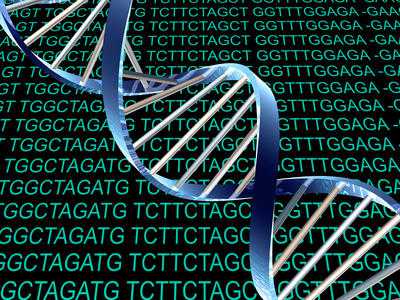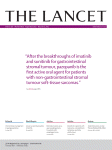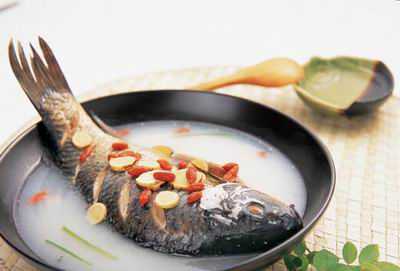JCI:康铁邦团队发现新的肝细胞癌治疗靶点CHK1/SYK(L)
2012-05-24 Deepblue 生物谷
近日,来自中山大学肿瘤防治中心的康铁邦教授及其团队发现,在肝细胞癌中,CHK1靶向脾酪氨酸激酶能够促进其水解,则靶向CHK1/SYK(L)通路能成为一个很有潜力的HCC治疗策略。 肝细胞癌(HCC)是目前最流行的恶性肿瘤之一,能够顽强抵抗化疗或放疗。因此,确定HCC新的治疗靶点更是迫在眉睫。 在这项研究里,他们发现,HCC患者的细胞周期检测点激酶1(CHK1)被频繁的过表达,而且这与不良预后结
近日,来自中山大学肿瘤防治中心的康铁邦教授及其团队发现,在肝细胞癌中,CHK1靶向脾酪氨酸激酶能够促进其水解,则靶向CHK1/SYK(L)通路能成为一个很有潜力的HCC治疗策略。
肝细胞癌(HCC)是目前最流行的恶性肿瘤之一,能够顽强抵抗化疗或放疗。因此,确定HCC新的治疗靶点更是迫在眉睫。
在这项研究里,他们发现,HCC患者的细胞周期检测点激酶1(CHK1)被频繁的过表达,而且这与不良预后结果一致。进一步研究发现,CHK1抑制剂GÖ6976能够使HCC细胞对顺铂(一种广谱抗癌药物)敏感,这表明CHK1可能具有促癌功能。
他们发现,CHK1磷酸化了肿瘤抑制因子-脾酪氨酸激酶(L)(SYK[L]),其磷酸化位点为Ser295。此外,CHK1磷酸化SYK[L]以后,促进了SYK[L]随后的蛋白酶体降解。
而且,在HCC细胞系,SYK(L)的非磷酸化突变体能够更有效的抑制细胞增生、集落形成、细胞迁移及肿瘤生长。
重要的是,在HCC患者,他们发现CHK1与SYK(L)的表达水平之间表现出很强的反相关关系。(生物谷Deepblue编译)

doi: 10.1172/JCI61380
PMC:
PMID:
CHK1 targets spleen tyrosine kinase (L) for proteolysis in hepatocellular carcinoma
Jian Hong, Kaishun Hu, Yunfei Yuan, Yi Sang, Qiangui Bu, Guihua Chen, Longjun Yang, Binkui Li, Pinzhu Huang, Dongtai Chen, Yi Liang, Ruhua Zhang, Jingxuan Pan, Yi-Xin Zeng and Tiebang Kang.
Hepatocellular carcinoma (HCC) is one of the most prevalent malignancies resistant to current chemotherapies or radiotherapies, which makes it urgent to identify new therapeutic targets for HCC.In this study, we found that checkpoint kinase 1 (CHK1) was frequently overexpressed and correlated with poor clinical outcome in patients with HCC. We further showed that the CHK1 inhibitor GÖ6976 was capable of sensitizing HCC cells to cisplatin, indicating that CHK1 may have oncogenic function in HCC.We found that CHK1 phosphorylated the tumor suppressor spleen tyrosine kinase (L)(SYK[L]) and identified the phosphorylation site at Ser295. Furthermore, CHK1 phosphorylation of SYK(L) promoted its subsequent proteasomal degradation.Expression of a nonphosphorylated mutant of SYK(L) was more efficient at suppressing proliferation, colony formation, mobility, and tumor growth in HCC lines.Importantly, a strong inverse correlation between the expression levels of CHK1 and SYK(L) was observed in patients with HCC.Collectively, our data demonstrate that SYK(L) is a substrate of CHK1 in tumor cells and suggest that targeting the CHK1/SYK(L) pathway may be a promising strategy for treating HCC.
本网站所有内容来源注明为“梅斯医学”或“MedSci原创”的文字、图片和音视频资料,版权均属于梅斯医学所有。非经授权,任何媒体、网站或个人不得转载,授权转载时须注明来源为“梅斯医学”。其它来源的文章系转载文章,或“梅斯号”自媒体发布的文章,仅系出于传递更多信息之目的,本站仅负责审核内容合规,其内容不代表本站立场,本站不负责内容的准确性和版权。如果存在侵权、或不希望被转载的媒体或个人可与我们联系,我们将立即进行删除处理。
在此留言














#治疗靶点#
56
#JCI#
61
#肝细胞#
51
#细胞癌#
59
#CHK1#
72